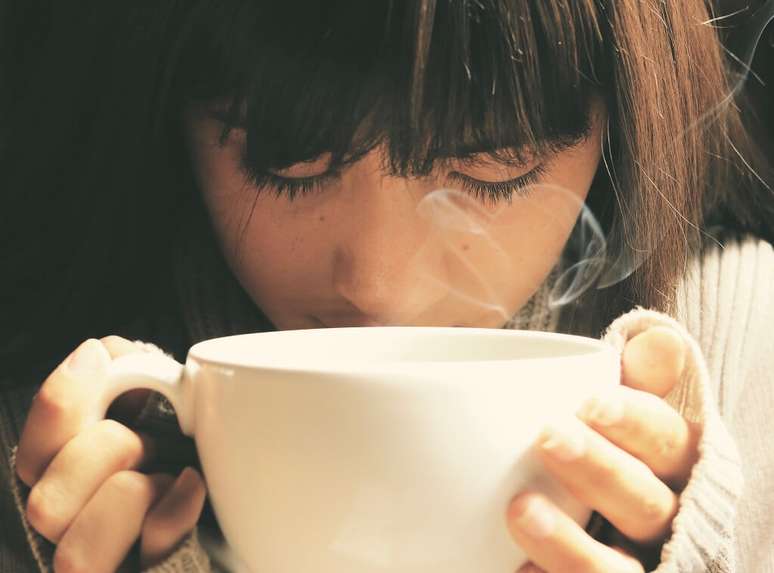Understand how the changing seasons affect our lives and see tips for dealing with the cold in both autumn and winter
html[data-range=”xlarge”] figure figure img.img-46693e1495c3faa8c292535d52d11f582fdwmdv2 { width: 774px; height: 573px; }HTML[data-range=”large”] figure image img.img-46693e1495c3faa8c292535d52d11f582fdwmdv2 { width: 548px; height: 406px; }HTML[data-range=”small”] figure image img.img-46693e1495c3faa8c292535d52d11f582fdwmdv2, html[data-range=”medium”] figure image img.img-46693e1495c3faa8c292535d52d11f582fdwmdv2 { width: 564px; height: 417px; }
Nature, like life, is expressed in cycles. If we learn to align ourselves with this cyclical force, we will enjoy many benefits for our health and well-being. Seasonal changes are some of the cycles that affect us the most. Thinking about it, it is possible to prepare for the cold and reduce the damage.
Below, I explain more about the influence of the changing seasons on our lives and share Ayurvedic tips for dealing with the cold in both autumn and winter.
How do the seasons affect us?
Our body receives influences with every change of season and undergoes changes. This is because each Dosha (biological profile of the organism) naturally increases during the seasons that have similar qualities to it.
OR Summer it is a season of heat and humidity, and soon after we enter the Fall, which is a colder and, above all, drier climate. In Brazil this season is not as cold as in other countries, however, some precautions must be taken due to this drier attribute.
For Ayurveda, the dry and cold nature of autumn aggravates Vata Dosha (air and ether). Therefore, a person with a tendency towards Vata imbalance must take some precautions during the cold season. Winteras they are the same natural attributes of this Dosha.
How Ayurveda can help with the changing seasons
A Ayurvedic medicine (understand what is here) reveals the importance of following a routine, a balanced diet and taking care of yourself for a better balance of the Doshas affected by the season.
To help maintain or restore this balance, making dietary and lifestyle changes throughout the year is vital.
Generally, due to the outside temperature, we try to regulate our body temperature by choosing suitable clothes for each season, but it is also common to regulate the food we consume. But what would be more suitable?
To prepare for the cold and help increase body heat on colder days, we recommend broths, heated foods, tea (see tips for cold days here) and the use of spices in meals.
Ayurveda expands our knowledge on the subject, revealing other resources we have to maintain the seasonal balance. With this, you can also get relief for some discomforts, common during seasonal transitions, such as flu, allergies and coughs.
You may have already noticed, for example, how we accumulate more mucus during the winter. Soon you will be able to avoid some habits that facilitate these discomforts.
How to prepare for the cold
At the end of autumn, when the weather is colder, it is recommended to do this All consume warmer foods and drinks. A lot of rest and relaxation is also recommended, as it is a dynamic time when all of nature prepares for the coming winter.
Below we will summarize the general tips for all those who suffer from the cold:
- The hottest and wettest feed.
- Take at least 15 minutes Sun When possible.
- Try to do one every day physical activity until you start sweating.
- Cumin, turmeric, ginger, cinnamon, salt, cloves, mustard and a small amount of pepper are acceptable and will fight the cold. To the spices are therapeutic – learn more here.
- try to consume hot water along the day.
- digestive teas they are always welcome. See here how to prepare digestive herbal teas.
- In the morning, do a body lubrication with warm sesame oil, wait 15 minutes to bathe.
- For people who tend to get very cold feet, try applying it to your routine foot bath with warm water and also with calming herbal teaslike chamomile and lavender.
- Before you go to sleep, take a foot oiling with warm sesame oil and protect with socks.
- It’s still worth doing Detox Ayurveda (see here how) in any season and regularly to eliminate these toxins from our being to return to the natural state of well-being and health.
Tips for each Dosha in the cold
Since the digestive fire is strong in winter, in general, we can all enjoy slightly heavier foods. But there are some specific tips for each type of Dosha. If you don’t know yours, there are some tests online, but ideally consult a specialist.
vata
- Vata types should take special care to avoid astringent and bitter tastes, as they further cool and dry out the body.
- To balance Vata in the fall, it’s important to bring warmth, greasiness, deep nourishment, loving relationships, and a sense of stability, routine, and groundedness to your day-to-day life.
- Winter is cold and wet; in places, dry and intense, especially if you are Vata.
- Vatas must keep warm in winter, and take the necessary measures to compensate for the dryness of windy days and that caused by indoor heating.
- Oils are essential for Vata nutrition, bet on sesame oil or ghee in your meals and self-massage, prefer sesame oil.
kapha
- Kaphas, on the other hand, should avoid very salty, sweet, as well as cold, oily and fatty foods.
- Winter is cold and wet; in places, dry and intense, paying particular attention to the Kapha Dosha.
- Kapha types should exercise more during this time of year rather than succumb to the cold and hibernate.
- Kapha individuals should avoid sugar, cold foods (ice cream) or foods of a cold nature (like bananas), oils and fats, especially animal fats, which are difficult for our body to digest.
- If you notice excess mucus in the morning, try drinking warm water with 1 teaspoon of aged honey (more than 6 months of production).
- Prioritize meals with garlic, ginger, cinnamon, cumin, mustard and black pepper.
pitta
- In the colder seasons it is when Pitta feels most in balance with the environment. Because she already has the internal heat of the digestive fire, now she won’t overheat with the external environment.
- In the cold there is an increase in internal heat – digestive fire – in people of the Pitta type (fire + water) it is important to be careful not to increase digestion so much and generate discomfort.
- Don’t skip meals, it can further increase the digestive fire.
- Pitta types can avoid using spicy and salty foods if they experience this discomfort.
- Consume plenty of water at room temperature, in small sips throughout the day.
- You prefer slightly sweet and bitter flavors when you feel this excess internal heat.
The mail How to prepare for the cold with the help of Ayurveda appeared first on Personalize.
Deborah Ocampo (ocampoyoga@gmail.com)
– Ayurvedic therapist specialized in Ayurvedic treatments. Yoga instructor and practitioner. Majoring in Nutrition.
Source: Terra
Ben Stock is a lifestyle journalist and author at Gossipify. He writes about topics such as health, wellness, travel, food and home decor. He provides practical advice and inspiration to improve well-being, keeps readers up to date with latest lifestyle news and trends, known for his engaging writing style, in-depth analysis and unique perspectives.









